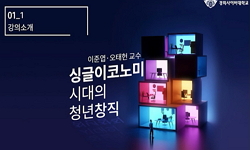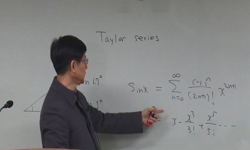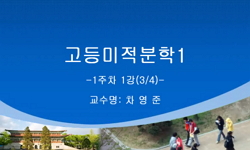비혼 및 1인 가구의 증가는 보편적 결혼과 비혼자의 가족 동거라는 전통적인 가족 규범을 벗어난다는 점에서 종종 가치관의 변화와 관련되어 논의되지만 실제로 이를 검증하는 연구는 부족...
http://chineseinput.net/에서 pinyin(병음)방식으로 중국어를 변환할 수 있습니다.
변환된 중국어를 복사하여 사용하시면 됩니다.
- 中文 을 입력하시려면 zhongwen을 입력하시고 space를누르시면됩니다.
- 北京 을 입력하시려면 beijing을 입력하시고 space를 누르시면 됩니다.

비혼과 1인 가구 시대의 청년층 결혼 가치관 연구 = A Study of Marriage Values System among Korean Young Adults across Marital Status and Living Arrangements
한글로보기https://www.riss.kr/link?id=A100290521
- 저자
- 발행기관
- 학술지명
- 권호사항
-
발행연도
2014
-
작성언어
Korean
- 주제어
-
등재정보
KCI등재
-
자료형태
학술저널
-
수록면
25-59(35쪽)
- 제공처
-
0
상세조회 -
0
다운로드
부가정보
국문 초록 (Abstract)
비혼 및 1인 가구의 증가는 보편적 결혼과 비혼자의 가족 동거라는 전통적인 가족 규범을 벗어난다는 점에서 종종 가치관의 변화와 관련되어 논의되지만 실제로 이를 검증하는 연구는 부족하다. 이 논문은 2008년과 2012년 통계청 사회조사 데이터를 이용하여 25~39세 청년층의 결혼 가치관은 혼인 및 거주형태에 따라 어떻게 다른지 밝히고자 하였다. 또한 결혼 가치관은 2008년과 2012년 사이에 어떠한 변화를 보이는지, 그리고 그 정도와 방향은 혼인 및 거주형태에 따라 차이가 있는지 살펴보았다. 혼인 및 거주형태는 비혼이며 1인 가구를 형성하는 경우(비혼-1인가구원), 비혼이며 가족과 같이 사는 경우(비혼-가족가구원), 그리고 기혼이며 가족과 같이 사는 경우(기혼-가족가구원)로 구분하였다. 결혼 가치관은 결혼과 이혼에 대한 태도와 결혼 문화에 대한 태도(결혼 관계에서의 가족 우선성, 비혼 상태의 동거와 자녀 양육에 대한 동의 정도)로 측정하였다. 분석 결과, 비혼-1인가구원은 비혼-가족가구원과 기혼-가족가구원에 비해 탈전통적인 결혼 가치관을 지니는 것으로 나타났다. 즉 결혼에 대해 긍정적인 태도를 지닐 확률과 이혼에 대해 부정적인 태도를 지닐 확률이 모두 낮았으며, 결혼생활에서 당사자보다 가족을 우선시해야 한다는 의견에 대한 동의 정도가 낮았다. 반면 남녀가 결혼하지 않고 함께 살거나 자녀를 가질 수 있다는 의견에 대해서는 높은 동의 정도를 보였다. 2012년의 응답자는 2008년의 응답자보다 더욱 탈전통적인 가치관을 가지고 있었는데, 이 변화의 크기는 전통적인 결혼 및 거주규범을 따르는 기혼-가족가구원에서 가장 크게 나타났다. 이러한 결과는 결혼 가치관의 탈전통화가 지속될 것으로 예상하게 한다.
다국어 초록 (Multilingual Abstract)
The increase of the unmarried and one-person households among young adults characterizes family changes in Korea since 2000. This study examines how these changes relate to marriage values system. Three types of marital status and living arrangements ...
The increase of the unmarried and one-person households among young adults characterizes family changes in Korea since 2000. This study examines how these changes relate to marriage values system. Three types of marital status and living arrangements were compared: unmarried solo residents, unmarried family coresidents, and married family coresidents. Marriage values system was measured in five domains: attitudes toward marriage, attitudes toward divorce, priority of family over individual in marriage, attitudes toward cohabitation, and attitude towards non-marital childrearing. This study relied on two waves of repeated cross-sectional data from the Korean Social Survey (2008 and 2012). Results suggest that, the unmarried solo residents tend to have less traditional values system: they were less likely to see marriage as a positive norm to follow and less likely to view divorce as a negative event. They were less likely to agree that family has priority over individuals in marriage but were more likely to agree that marriage is not a necessary condition for cohabitation and childrearing. The married family coresidents, however, have experienced greater magnitude of changes in marriage values system between 2008 and 2012. Implications on future family changes were discussed.
목차 (Table of Contents)
- Ⅰ. 문제제기
- Ⅱ. 기존논의
- Ⅲ. 연구방법
- Ⅳ. 연구결과
- Ⅴ. 맺는 말
- Ⅰ. 문제제기
- Ⅱ. 기존논의
- Ⅲ. 연구방법
- Ⅳ. 연구결과
- Ⅴ. 맺는 말
- <참고문헌>
동일학술지(권/호) 다른 논문
-
- 한국인구학회
- 이진숙(JinSook Lee)
- 2014
- KCI등재
-
- 한국인구학회
- 최유석(Youseok Choi)
- 2014
- KCI등재
-
- 한국인구학회
- 이민아(Min-Ah Lee)
- 2014
- KCI등재
-
- 한국인구학회
- 유홍준(Hong Joon Yoo)
- 2014
- KCI등재





 DBpia
DBpia






